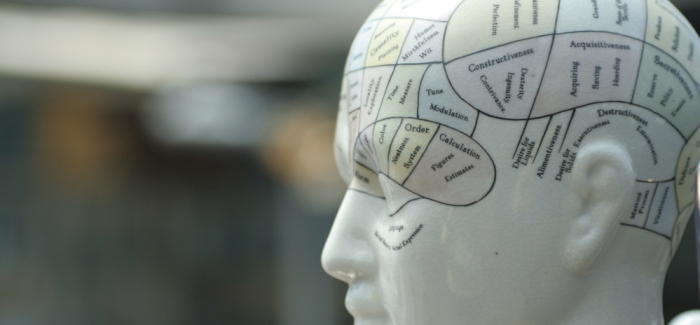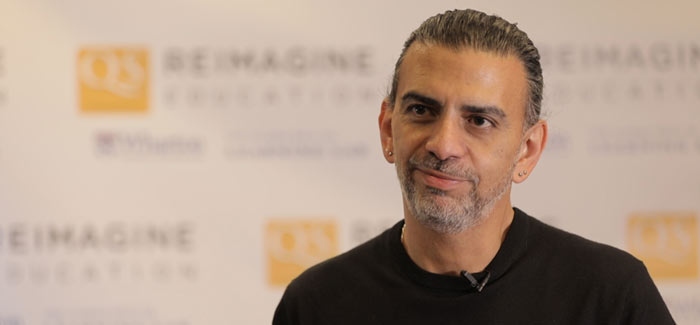Sponsored by University College Cork
Universities are taking it upon themselves to ensure the crossover between education and employment is as smooth and viable as possible, especially when it comes to the humanities and the arts. Although employment in these industries is active, they’re also becoming increasingly competitive to get into.
So, what’s next for humanities graduates, and what are universities doing to help tackle this particular issue? Fortunately, through the innovation of a ‘Connected Curriculum’ at the University College Cork, the arts and humanities are receiving heavy attention.
Located in a city which prides itself on its enthusiasm for art and culture and is home to the Glucksman (UCC’s award-winning on campus gallery), we spoke with Dr Mary Kelly, Lecturer in Contemporary Art History, Theory and Gallery Studies at University College Cork. She talked to us about the new MA in Global Gallery Studies, and how it aims to enhance students’ employability prospects.
So, what is the MA in Global Gallery Studies? And what can students expect to learn?
“The MA in Global Gallery Studies curriculum was developed and is run by expert practitioners in collaboration with national and international industry.
“Students engage with various theoretical modules including an introduction to global gallery studies, art history for curators and digital arts and humanities, as well as practice-based modules including cutting-edge learning experiences with the Glucksman, fieldwork in international galleries and a project-led internship with a prominent fine art gallery in Ireland or internationally.
“The MA has a specialization in global art and gallery studies with a genuine global emphasis. The taught and applied interdisciplinary elements of the MA not only engage with Irish, European and American gallery practices, but also focus on recent state-of-the-art gallery spaces and practices in non-western countries.
“We explore the term ‘global’ both theoretically and geographically. Through these lenses, we pursue a deep investigation of art, art institutions, and various gallery practices from around the world.”
What was the motivation behind creating this new MA?
“At the heart of the MA is a profound belief that, in order to foster well-rounded graduates who are work-ready and globally aware, we must work side-by-side with industry.
“The MA is designed to prepare students for their future careers in the gallery industry—combining academic learning with professional and field-based practice in order to develop deep knowledge about the sector.
“We also facilitate valuable networking opportunities for our students with industry both nationally and internationally.”
What is a typical fieldwork experience on the MA in Global Gallery Studies?
“In January 2017 and February 2018, I led 26 History of Art students from UCC to the United Arab Emirates for the purpose of conducting fieldwork in important art and cultural institutions.
“Exhibition viewings, artist and curatorial talks, and seminars delivered by leading scholars, gallery directors, art collectors and policy makers in the field were central to the learning experience.
“Galleries in Dubai, Abu Dhabi and Sharjah acted as key spaces for teaching and learning where the students were pushed beyond their educational and cultural comfort zones and tasked with locating the ‘borders’ of understanding between the local and global in modern and contemporary Middle Eastern art and gallery practices.
“This valuable international group fieldwork experience is part of a fully funded formal module on the MA in Global Gallery Studies where we travel to a different country each year.”
In what ways does the MA in Global Gallery Studies respond to the demands of a competitive employment market?
“Our approach nurtures an employable graduate who utilizes the academic knowledge gained in order to produce a meaningful, real-life project in collaboration with industry via their internship.
“Our students also have the opportunity to not only learn in the classroom environment, but also to visit important international galleries, build new networks, and learn state-of-the-art knowledge from leading international galleries and cultural experts.
“Furthermore, over 90 percent of most fine art collections are held in storage. Therefore, employers in the sector are seeking gallery professionals with skills in digital arts and humanities for the purpose of developing internal digitization projects. Training in digital arts and humanities is also included in the MA in Global Gallery Studies curriculum.”
What particular skills and knowledge will students be able to take with them into the workplace?
“Students will have an advanced ability to understand and write about visual material as well as complex issues in the gallery space.
“They will possess an understanding of professional practice, select legal frameworks and ethical standards in gallery practices.
“All students will have experience in the gallery space, and, depending on their internship, this might include curation support, educational support, research and more. Their transferable skills include innovative creativity; research and analytical skills; written and verbal skills; experience in project and time management as well as team collaboration; presentation skills; problem solving, and enhanced interpersonal skills and independent thinking.”
How does this MA prepare students for their future careers?
“We move our students beyond the lecture theater in order to teach them what it is like to be a professional in the gallery sector, and how to be a professional in the gallery sector.
“Exposing students to active projects through their internships and fieldwork, as well as object-based teaching and learning and innovative assessment techniques enhances the student’s transferable skills and subject knowledge.”
What you can do next
Possible careers awaiting you include everything from curation, archive digitization (gallery website content creation, maintenance and development, including social media integration) and global outreach, to gallery consultancy or specializing and working as an artist advisor.
With the right experience, skills and qualifications, it’s absolutely possible to find a career that’s perfectly suited for you and your interests.
To find out more about the MA in Global Gallery Studies, please contact Dr Mary Kelly, Program Director via email: mary.kelly@ucc.ie
Lead image: History of Art Students from UCC at Sharjah Art Museum, UAE, January 2017. Artwork: Kaz Shirane, Light Origami, 2015. Photo: Barry Pierce.













